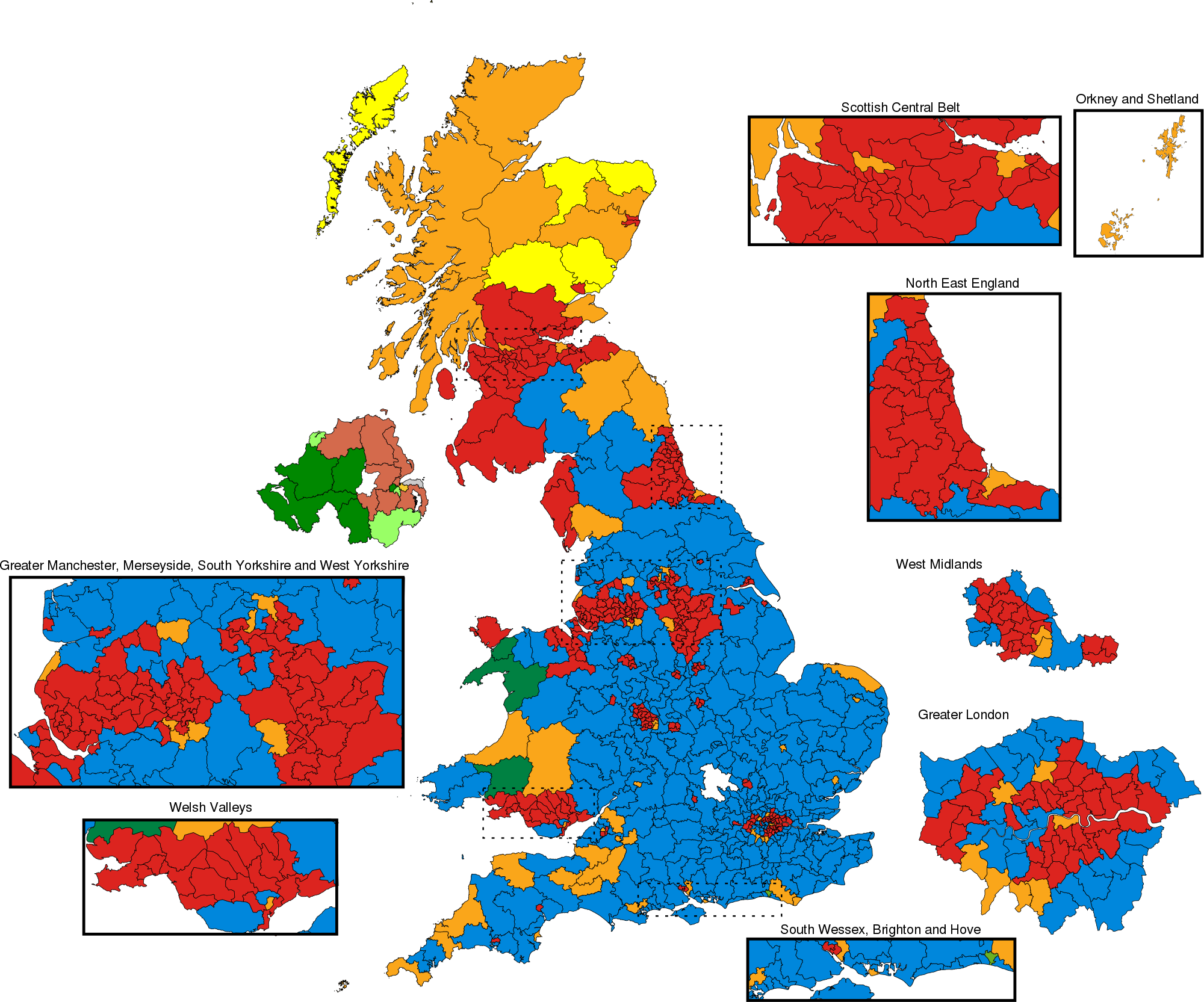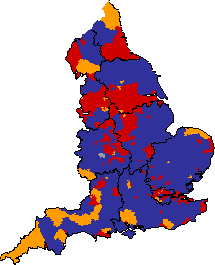Willie Thompson writes:
In the week of the general election
the New Scientist journal, which is
published on Saturdays, had an accidentally appropriate headline on its front
cover (referring to the danger of mutant bugs} it reads,
‘THE NEW PLAGUE’
Which would likewise do very well
for the political situation we find ourselves in now. The cover also advertises
another of the articles inside, ‘No person, no vote: How health inequalities
distort democracy’. That article links differential health outcomes with social
class, showing how lower-income electoral strength is consequently
weakened.
It was an exceptionally important
election with a remarkable as well as an exceptionally calamitous outcome – and
also an exceptionally dirty one. The Tories invoked near-racist prejudice
against Scottish voters and attempted, with some success, to fasten on the SNP
the scary role that the communists used to occupy in British right-wing
imagination. The Labour Party rhetoric did little to challenge this caricature
or emphasise that the SNP had evolved into a mildly left-wing social democratic
force which had a record of devolved government very much in accordance with
British social values as they used to be in the days before Thatcher. They
simply tried their hardest to dissociate themselves.
To be sure the Labour campaign had
plenty of weaknesses and shortcomings. Not that a boldly left-wing one would have
enhanced the chances of victory; it might even have weakened it given the
nature of the southern English political climate. What it might have done but
failed to do was to present a coherent and convincing programme of progressive
change that would have addressed the various issues hurting the public
throughout the country. For example, alongside the protection of the NHS from
market rapacity and introducing controls on private renting, it could have
proposed returning the railways first of all to public control via regulation and
then to public ownership – not by immediate outright renationalisation, which
would have incurred enormous expense, but by resuming the various franchises as
they expired.
Instead what the Miliband team did
was to staple on a few socially progressive items to what remained an overall
acceptance of a society governed by neoliberal values, exemplified in Ed Balls’
economic strategy, which needed a magnifying glass to distinguish from George
Osborne’s. Moreover, while not advocating it, EU withdrawal should not have been
excluded as an option in all circumstances if its bureaucracy insisted in
blocking socially progressive measures. Moreover Labour should, in particular, have promised to have
nothing to do with TTIP; instead that was viewed with some approval.
In addition the Labour Party should
have denounced the sort of political rhetoric favoured by our elites,
emphasising that, ‘Hard Decisions’ and Tough Choices’ are not hard and tough
for the people who make them in their well-cushioned comfort, but for the
citizens who have to endure them. Labour was accused of being anti-business, to
which it responded only with weak denials. What it should have proclaimed loudly
and emphatically was along the lines of ‘What we’re in favour of are businesses
which give their workforce a fair deal, which are attentive to the needs of
their customers, which pay their taxes willingly and are alert to their
environmental responsibilities. These we’ll applaud, listen to and support;
what we’re against are ones who do the opposite, all too prevalent in the
present-day neoliberal climate’. That’s not a socialist programme, but is one
which the evidence of the recent past suggests would have found a public
response even in ‘middle England’.
The Labour campaign was too
left-wing, we’re informed. Like in Scotland? And what happened to the Lib Dems,
who were surely ‘aspirational’ enough? Back in 2010 after the coalition was
formed one of their MPs complained that he hadn’t been elected to make poor
people even poorer. That is exactly what his party did and for their treachery
they got their just deserts, which regrettably was not to the public advantage.
Now in the aftermath, while Tories
and their stuffed-wallet backers gloat and plan their next assault upon the
common good, another weasel word is intruding into the vocabulary as the heirs
of the Blair-Mandelson gang (plus Blair and Mandelson themselves) crawl out of
their political slime to try to recapture what remains of the party for their
catastrophic project of being indistinguishable from the Tories – or even
worse if that were possible. That word is ‘aspirational’, a code term in this
context for the active encouragement of greed and irresponsibility. It’s
otherwise known as ‘I’m all right Jack.’
Were Labour to go down this toxic
route, as it may well do, the likely inheritor in the absence of other
considerations, might even be UKIP, who, in spite of their election
disappointments polled strongly, especially in Labour heartlands like North
East England. We face the possible nightmare scenario in five years time of
UKIP doing in these places what the SNP has done to Scottish Labour and Lib
Dems. One of these other considerations however is the Green Party, which will
be striving to prevent any such outcome. Its electoral successes on May 7-8
were modest, but they provide a strong base on which to build and expand.
In the event of the Blairites
triumphing, a possible response would be for those on the Labour left together
with other honest members and MPs to split away and form a loose coalition with
other progressive political forces such as the SNP and the Greens. Tony Benn in
one of his last public meetings, in South Shields, argued that the Labour and
Green parties should work together, and in Scotland the Greens there act in
co-operation with the SNP and relations are friendly.
We will have to see, but
without any doubt whatever we are on the point of experiencing interesting
times – in the Chinese sense.


